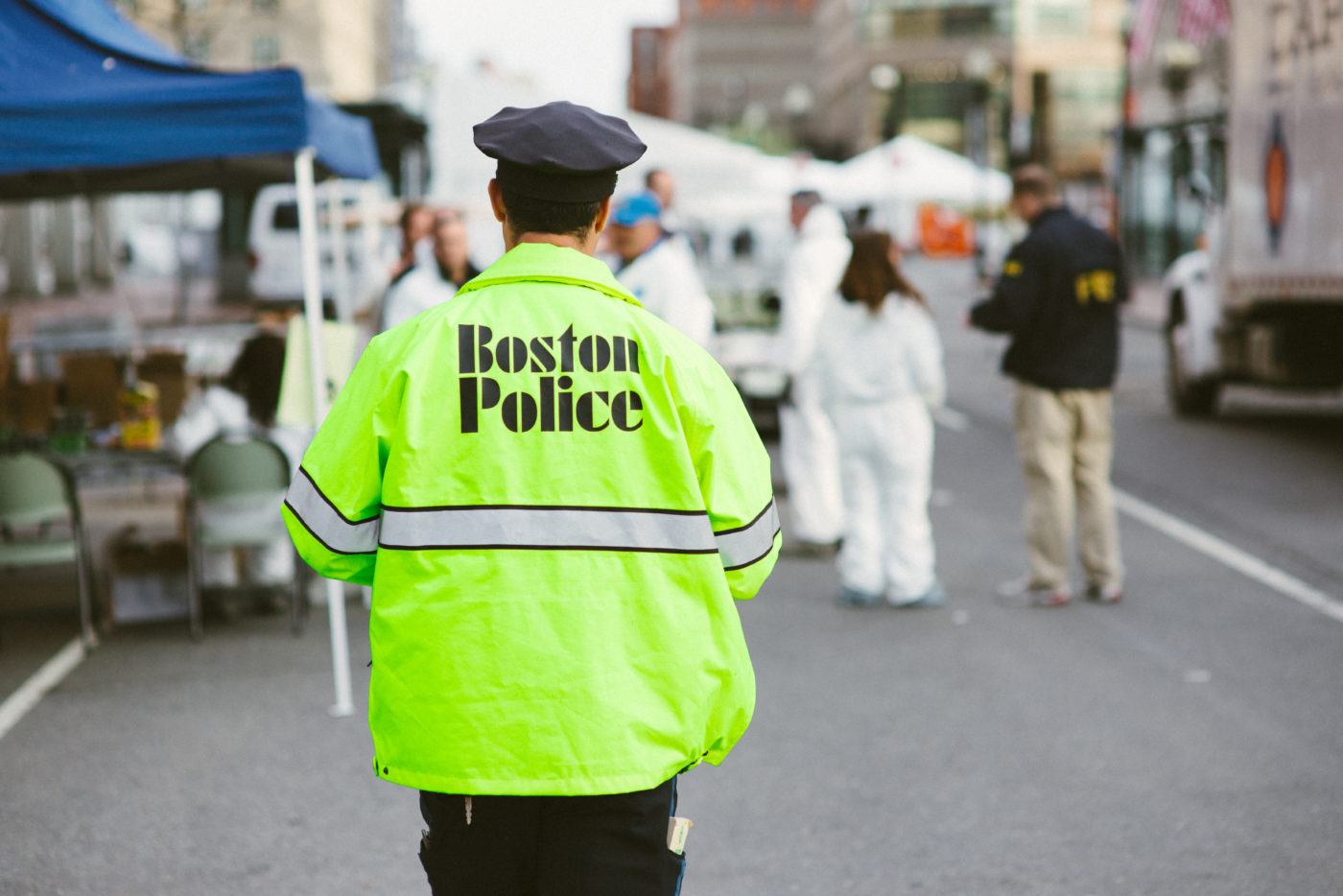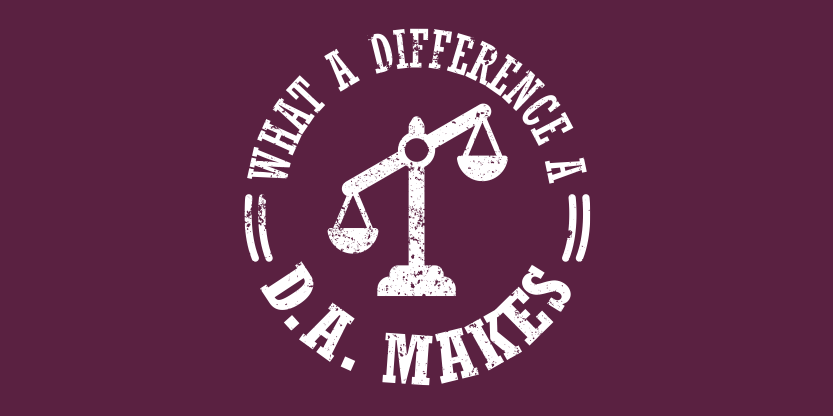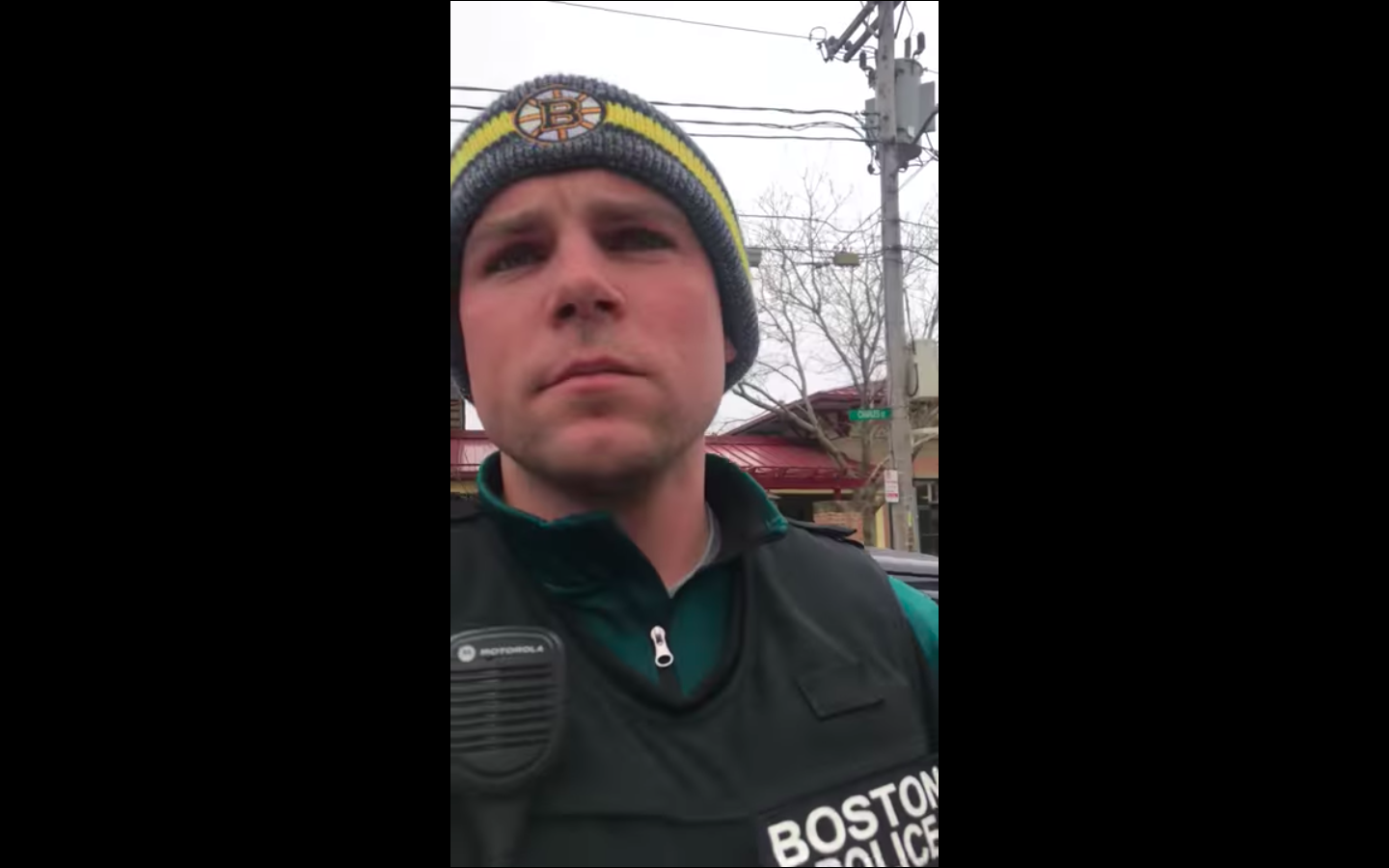Six days after President Trump’s inauguration, Boston Mayor Marty Walsh held a press conference at City Hall, announcing to the world that Boston was and would remain a friend to immigrants. He said the city “will continue to foster trusting relationships between law enforcement and the immigrant community… and will not waste vital police resources on misguided federal actions."
But despite the rhetoric, a year later, Boston is still not doing enough to protect immigrants and other vulnerable residents from the Trump administration. The city can and must do more.
A new report co-published by the Century Foundation and the ACLU of Massachusetts offers concrete policy proposals for progressive cities like Boston. If cities really want to guarantee “sanctuary” for their residents, they must be willing to throw sand in the gears of the federal deportation machine – and progressive city leaders must back up their promises with policy.
Mayor Walsh’s record on this front is good, but not unblemished.
Last month, the Walsh administration and the Boston Police Department (BPD) faced criticism from advocates, including the ACLU, over its handling of information in the city’s gang assessment database. A young immigrant from East Boston now faces deportation because the Boston Regional Intelligence Center – a “fusion center” staffed by Boston Police and federal agents – told Immigration and Customs Enforcement (ICE) he was a gang member. His lawyer says nothing could be farther from the truth, and that her client was wrongfully accused by the BPD.
It’s bad enough to be wrongly labeled a gang member by a local cop, but when the Department shares information like this with ICE, it can have devastating and potentially life-threatening consequences for young people. The city’s response to the controversy was muted, and despite Mayor Walsh’s promise to protect Boston’s immigrants, the Department has not pledged to change the way it shares information with federal immigration authorities.
Part of the problem is that current BPD policy allows officers and analysts to collect, retain, and share with federal agencies information about people even when they are not suspected of engaging in any criminal activity.
This misguided BPD policy doesn’t just harm immigrants. In 2012, the ACLU and the National Lawyers Group published BPD documents revealing extensive surveillance of anti-war groups, labeling the activists as “extremists.” More recently, the BPD secretly used a social media surveillance tool to monitor online speech related to people’s religious and political affiliations.
These types of surveillance in collaboration with with federal authorities don’t just violate civil rights and civil liberties; they also undermine community trust in local law enforcement, a key reason progressive mayors like Mayor Walsh call on when highlighting the importance of separating local cops from Trump’s immigration enforcers.
To turn promises into policy, Mayor Walsh should work to ban the collection of information about people engaged in First Amendment protected activity, unless they have specific reason to believe the person is involved in serious crimes.
He should also follow San Francisco’s lead and sever ties with the FBI’s Joint Terrorism Task Force (JTTF). BPD officers working on the Boston JTTF may be engaging in practices the FBI endorses, but that Bostonians should roundly reject – like racial and religious profiling. During his confirmation hearings last year, FBI Director Wray refused to say that he would bar agents from infiltrating mosques, even if agents had no reason to believe there was criminal activity occurring inside them. That type of biased and discriminatory conduct should find no quarter in Boston.
Walsh should also encourage BPD to review the gang databasing system itself to determine how frequently it is improperly identifying young people of color as gang members, simply because of where they live or whom they know. When the mayor of Portland, Oregon took a look at his city’s gang database, he discovered 81 percent of the people in it were people of color. To rebuild trust with those communities, he shut the database down for good. That kind of leadership should be a model for Boston.
Finally, Mayor Walsh should welcome with open arms efforts at the City Council to establish a local ordinance requiring city agencies, including BPD, to go through a transparent, democratic, public process before acquiring new surveillance technologies. If history is any lesson, these tools will inevitably be used to disproportionately target communities of color, including immigrant communities.
People who care about justice and equality are grateful for Mayor Walsh’s efforts to make immigrants feel at home in Boston. But we can do much more, and in the process also expand civil rights and civil liberties protections for citizens. We must reject the Trump administration’s bigotry, racism, and hatred; to do that, we must build our own wall – in the form of concrete policies, ordinances, and procedures – to protect our communities from federal harm.
READ THE REPORT
Date
Tuesday, March 20, 2018 - 8:00am
Featured image
Show featured image
Hide banner image
Related issues
Immigrants' Rights
Police Accountability
Privacy and Surveillance
Racial Justice
Show related content
Tweet Text
[node:title]
Type
Menu parent dynamic listing
Style
Standard with sidebar
This blog was written by Rahsaan Hall, ACLU of Massachusetts' Racial Justice director and director of the What a Difference a DA Makes campaign. It was originally published on the campaign's website.
Every legislative session, criminal law reform advocates ask the legislature to pass progressive reforms to our criminal legal system that would make it fairer for everyone. But there is one group that has remained resistant to sensible reform: district attorneys.
One area district attorneys have consistently opposed reform is repealing mandatory minimum sentences for drug offenses. Mandatory minimums, despite having little or no impact on stopping crime, give DAs the power to make someone plead guilty by threatening them with a lengthy mandatory minimum sentence. If prosecutors did not have this tool, they would be forced to try more cases as people exercised their constitutional right to trial.
District attorneys have also objected to reforms intended to make the criminal legal system work fairly for everyone. They have opposed efforts to prevent young children from being arrested and prosecuted and reforms designed to limit the ways in which poor people get entangled in the system. For example, DAs have spoken out against lowering fines and fees that disproportionately impact poor people, as well as reforming the state’s bail system.
You don’t have to look far for examples of DAs using their power to prevent important reform.
After months of work by advocates, the Massachusetts Senate recently debated legislation that included many life-changing reforms to the state’s criminal legal system, like repealing certain mandatory minimums and ending excessive fines. During the debate, nine of the state’s 11 DAs issued a scathing public letter, criticizing much of the bill and stopping many reforms in their tracks. It is no surprise that the House’s version of the bill left out many of the important reforms, a clear result of the DAs influence over the legislative process.
With a tremendous amount of hard work, the ACLU and its allies convinced legislators to put many crucial reforms back into the final proposal. But that fight should never have been necessary.
The fact is, district attorneys consistently oppose progressive reforms, but support broad expansion of their own power, and over-criminalization of communities. They rely on fear-mongering and anecdotes of worst-case scenarios.
What do DAs support? They have fought to expand their ability to surveil residents through the state’s wiretap statute and have even tried to create new mandatory minimums to make it easier to imprison people with substance use disorders. This blocks efforts to increase resources for treatment and does not benefit public safety.
A poll we released in July showed that fewer than half of Massachusetts voters think the Commonwealth’s criminal justice system is working, with huge majorities of all races and ideologies believing that the criminal legal system works differently for different people. Eighty-eight percent of voters think the state should work to change the criminal justice system so that people are not treated differently based on who they know – and 84 percent of voters think Massachusetts should work to change the criminal justice system so that people are not treated differently based on their race.
To make that system possible, we must elect district attorneys who fight for – not against – reforms. We need to learn about the issues and where our candidates stand. We must use our voices and our votes to elect DAs committed to decreasing incarceration, increasing safety, and strengthening communities.
Learn more about the power of district attorneys and get involved with the campaign by visiting DAdifference.org. You can also follow the campaign on Twitter: @DAdifference_MA.
Date
Monday, March 5, 2018 - 5:00pm
Featured image
Show featured image
Hide banner image
Related issues
Criminal Law Reform
Racial Justice
Show related content
Tweet Text
[node:title]
Type
Menu parent dynamic listing
Featured video (deprecated):
Please note that by playing this clip YouTube and Google will place a long term cookie on your computer.
Style
Standard with sidebar
By Rahsaan Hall, director of the Racial Justice Program at the ACLU of Massachusetts
Boston Police Officer Zachary Crossen just last year celebrated the trust being cultivated between the Boston Police Department and the city’s young people.
“I’m not naïve. I know I’m a white police officer in a predominantly minority neighborhood – and that’s a huge thing to overcome,” Crossen said in an interview on national television. He then described how he met and developed a relationship with a young Black man through a case of “mistaken identity.” He defended he wasn’t stereotyping when he initially engaged the young black man in a hoodie in a park.
Fast forward to this month – and Officer Crossen is the subject of a video that shows a tense exchange between him and a young Black passerby.
The video starts off with another case of “mistaken identity,” when Crossen yells out at the man as he was walking.
“You aren’t Kevin by any chance, are you?” he asked.
The young man – whose first name is Keith – responds that his name is not Kevin. Crossen doesn’t seem convinced and tells Keith Antonio that he looks like “somebody we are looking to speak to.”
The exchange in the video escalates into a scene that communities of color – particularly for Black men like Antonio – know all too well. Crossen attempts to bait Antonio into conflict – and at one point, teeters on the edge of an unreasonable seizure when the officer tells him to “hold on.” The fact is, we have a Constitution that protects against that very procedure – and as someone who had not violated any laws there was absolutely no reason to hold Antonio.
What follows is even more disturbing. Crossen questions Antonio about the ownership of his phone and his employment; a line of inquiry eerily reminiscent of the post reconstruction-era Black codes that gave law enforcement the ability to arrest Black people for not having a job.
Unfortunately, there’s nothing historically or culturally unique about Antonio’s experience with Crossen. This video shows a pattern that has existed in Boston and throughout the nation for generations: police officers engaging young Black men disrespectfully in a way that contributes to the often-strained relationship between police and communities.
Boston Police Commissioner William Evans has commented on flagging police-community relations, and has shamed neighborhoods for not readily coming forward when there are local shootings or homicides – but he hasn’t taken responsibility for the impact his team’s behaviors can have on the mistrust of a community.
There was also another possible mistaken identity. When Antonio asked for Crossen’s badge number he provided the number 1606. This is not Zachary Crossen’s badge number. It belongs to another Boston police officer. It’s possible that Crossen "mistakenly" provided the wrong identity, but his move to obscure the badge when giving the incorrect number suggests otherwise.
However, the real mistaken identity is that of the Boston Police Department. With national coverage like the CBS special, Boston has a reputation for being a leader in community policing. The ACLU issued a report in 2014 that showed the Boston Police Department has a history of disproportionately stopping black people without reasonable suspicion or probable cause. We need to confront this narrative that the Boston Police Department “does it right” when there are so many examples of them getting it wrong. It’s no wonder that African Americans see Boston as an unwelcoming city. If Boston is to be deserving of the open and progressive identity it strives for, there is a lot of work to do.
The video and the conversations it has sparked create a space to talk about what law enforcement can do better. Antonio’s exchange with Officer Crossen is yet another example of why we need greater transparency and accountability for police. In Boston, the city’s police department seems to be backing away from adopting body-worn cameras as an important step towards greater oversight and accountability. Body cameras are not a cure-all. But, if combined with good policies, they can build community trust, improve safety and promote mutual respect on both sides of the badge. Maybe then Boston can be correctly identified as a leader in community policing.
Date
Monday, March 5, 2018 - 12:00pm
Featured image
Show featured image
Hide banner image
Related issues
Police Accountability
Racial Justice
Show related content
Tweet Text
[node:title]
Type
Menu parent dynamic listing
Style
Standard with sidebar
Pages


